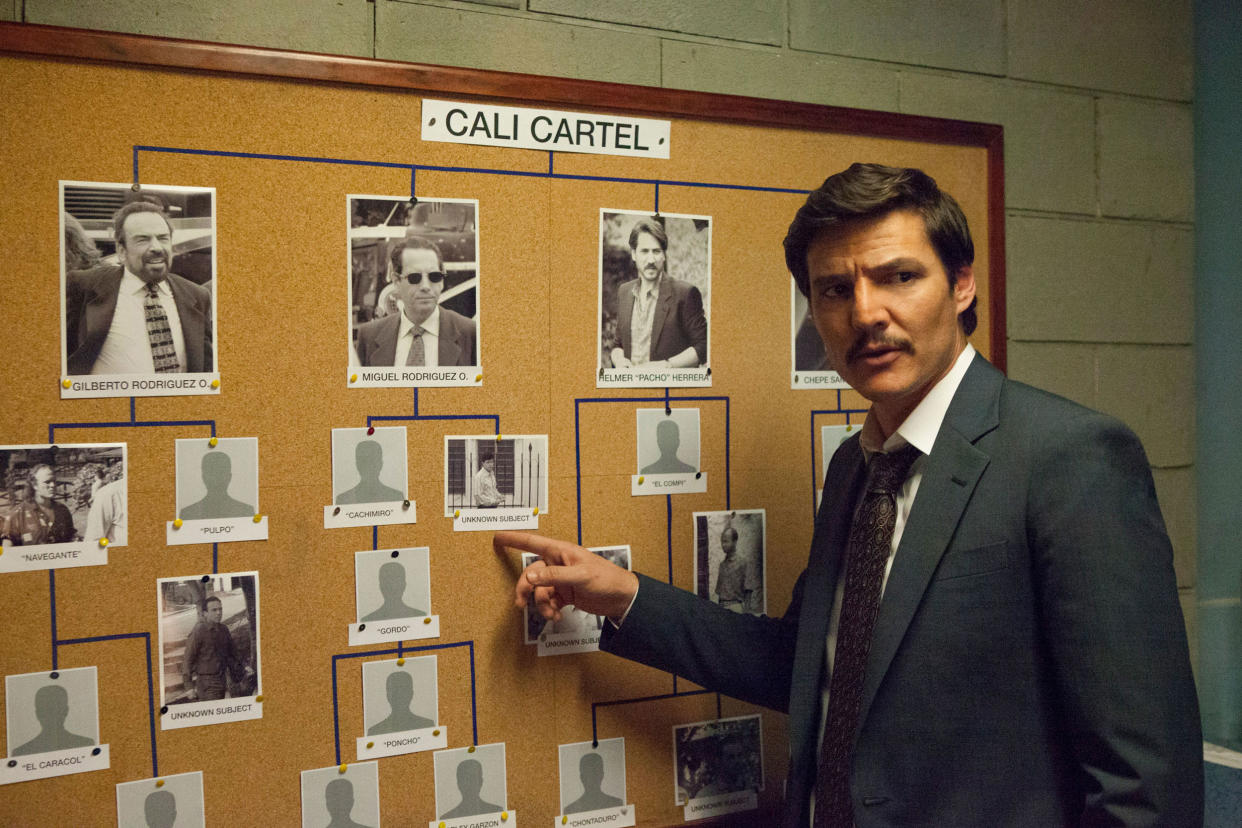'Narcos': New season, new faces, new drug drama

Tense and complex, the new Season 3 of Narcos — streaming now on Netflix — is distinctly different from its two previous seasons. Gone and dead is Pablo Escobar, the real-life drug lord who served as this series’ anti-hero in a solid performance by Wagner Moura. Having dispatched Escobar, the show had to find a new focus, and has shifted to examining the deadly grim shenanigans of the Cali Cartel cocaine distribution network in the 1990s, with a boatload of new faces.
The most familiar face is the one that co-starred last season: Javier Pena, played by Pedro Pascal, has been promoted to the lead protagonist spot. He had been paired with fellow DEA agent Steve Murphy, portrayed by Boyd Holbrook, who has vanished from the new season because someone finally noticed that the Steve character was a sullen bore. So Pascal’s Pena now also takes over Murphy’s portentous voice-over narration, and Season 3 begins with a wincing doozy: “To kill a monster, sometimes you have to get in bed with other monsters.” Oooh, profound. Thankfully, there seem to be fewer voice-overs this season, the better to concentrate on the show’s action — which is frequently startling and absorbing.
The true history undergirding this fact-based drama (overseen by show creators Chris Brancato, Carlo Bernard, and Doug Miro) yields a lot of material that lends the new season of Narcos some of the flavor of Brian De Palma’s Scarface, even to the point of occasionally going enjoyably over the top. Depicting wildly successful cocaine kingpins will do that to a drama, and a shootout in a hair salon early in the 10-episode season is a well-staged piece of old-fashioned gangster violence.
Much of the season’s attention, however, is on the business of maintaining one’s status in the drug trade. When a key leader in the Cali Cartel announces his idea that the cartel should cease its illegal activities and begin the process of going legit and mainstream (private businesses; running for political office), it kicks off internal dissension and drawsnthe full attention of the DEA, which begins working with the CIA and South American law enforcement to take down the cartel before it either disappears or destroys itself in leaderless anarchy. It’s a measure of how good Narcos has become in balancing thickly braided narratives with action sequences that viewers will become caught up in a wide variety of subplots that occasionally overlap.
Much of the most enjoyable material emanates from brother kingpins Gilberto and Miguel Rodriguez Orejuela (Damian Alcazar and Francisco Denis), along with Gilberto’s petulant-brat, violent son David, played by Broad City’s baby-faced Arturo Castro. The producers are clever about manipulating the expectations of their American audience, as no familiar guest stars (Halt and Catch Fire’s Kerry Bishé, for example, has a nice role) are necessarily safe from violence inflicted by both the good and bad guys. By staying flexible and surprising, Narcos — already renewed for another season — is earning a life longer than the reign of some of the drug lords it portrays.
Narcos is streaming now on Netflix.

